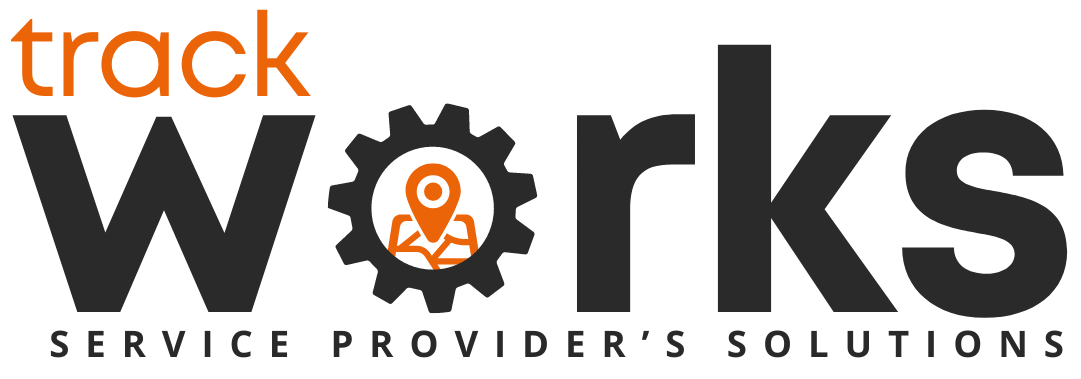Data & Analytics in FSM: KPIs, Dashboards, and Predictive Insights
Introduction
In modern field service management, data isn’t just a record—it’s a strategic asset. Companies that harness their FSM data can make smarter decisions, optimize operations, and predict future trends. KPIs, dashboards, and predictive analytics provide the insights needed to improve efficiency, reduce costs, and enhance customer satisfaction.
This post explores how field service businesses can leverage data effectively and how Track Works enables actionable insights for teams of all sizes.
1. Key KPIs to Track in Field Service
KPIs (Key Performance Indicators) help managers measure performance and make informed decisions. Important KPIs include:
- First-Time Fix Rate (FTFR): Percentage of jobs completed successfully on the first visit
- Average Response Time: Time from customer request to technician arrival
- Job Completion Time: Actual vs. estimated duration for each service call
- Technician Utilization: How much of a technician’s workday is productive
- Customer Satisfaction Scores (CSAT/NPS): Feedback from customers on service quality
- Travel Time & Route Efficiency: Efficiency of scheduling and routing
Tracking these KPIs helps identify bottlenecks, improve productivity, and enhance customer experience.
2. Dashboards: Visualizing Your Data
Dashboards consolidate key metrics into a single, easy-to-read interface. Benefits include:
- Real-Time Visibility: See technician status, job progress, and operational performance at a glance
- Trend Analysis: Track performance over time to identify improvements or recurring issues
- Decision Support: Quickly pinpoint areas needing attention, such as overbooked technicians or delayed jobs
- Customizable Views: Focus on the metrics that matter most to your business
A well-designed dashboard turns raw data into actionable insights.
3. Predictive Analytics: Moving from Reactive to Proactive
Predictive analytics uses historical data and algorithms to forecast future events and trends:
- Maintenance Predictions: Anticipate equipment failures before they occur
- Demand Forecasting: Identify peak periods and allocate resources efficiently
- Resource Optimization: Predict workload distribution to prevent technician overloading
- Customer Behavior Analysis: Spot patterns that indicate churn risk or upsell opportunities
Predictive insights allow field service businesses to act proactively rather than reacting to issues after they occur.
4. Common Data Challenges
Field service teams often face hurdles when trying to leverage data effectively:
- Data Silos: Information spread across FSM, ERP, CRM, and accounting systems
- Manual Entry Errors: Inaccurate or delayed data reduces reliability
- Overwhelming Volume: Large amounts of data can be confusing without proper dashboards
- Lack of Actionable Insights: Data must be translated into decisions and workflows
Addressing these challenges requires integrated systems, automation, and user-friendly visualization tools.
5. How Track Works Supports Data-Driven Decision Making
Track Works provides a complete analytics solution for field service:
- Integrated Data: Combines job history, technician performance, customer info, and operational metrics
- Custom Dashboards: Visualize KPIs in real-time with intuitive charts and graphs
- Predictive Insights: Forecast demand, optimize routes, and predict maintenance needs
- Reporting Tools: Generate automated reports for management or clients
- Mobile Access: Field technicians can view relevant metrics and complete tasks efficiently on the go
By providing real-time visibility and predictive intelligence, Track Works helps teams make decisions faster and more accurately.
6. Benefits of Data-Driven FSM
- Improved Efficiency: Identify and eliminate bottlenecks in scheduling, routing, and workflow
- Enhanced Customer Satisfaction: Faster response times, higher first-time fix rates, and proactive maintenance
- Reduced Costs: Optimize labor, travel, and inventory
- Better Strategic Planning: Predictive insights guide growth and resource allocation
- Increased Accountability: Transparent metrics for technicians, dispatchers, and management
Conclusion
Data and analytics are no longer optional—they’re essential for modern field service management. By tracking KPIs, leveraging dashboards, and applying predictive insights, businesses can transform operations from reactive to proactive.
Track Works delivers an integrated, user-friendly platform that provides real-time visibility, actionable insights, and predictive intelligence, empowering field service teams to optimize performance, delight customers, and drive growth.




No responses yet